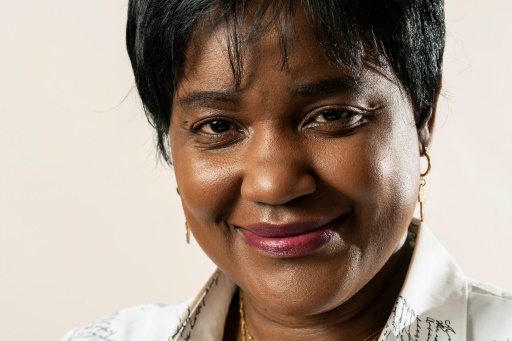
[ad_1]
It has been more than 16 years since Debora Kayembe fled her home in the Democratic Republic of the Congo after learning that a group of armed militiamen she had helped expose wanted to kill her.
Since then, Kayembe has sought asylum in Britain, started a family and settled in Edinburgh, where she worked as a human rights lawyer and political activist.
Despite a life filled with hardships and achievements, she said nothing could have prepared her for the message she received on the afternoon of February 1.
Last November, she was asked if she would consider accepting an appointment to become the new rector of the University of Edinburgh, which was founded in the 16th century.
If named, she would be the university’s very first black rector. She accepted the offer, feeling that she had little chance.
When the message came that she had been confirmed for the role – 162 years after William Gladstone was appointed first rector – Kayembe, 45, was speechless.
“It’s something in my life that I never imagined happening to me,” she told AFP.
“I never went to get it. It came on my plate and I made it feel welcome.
“So … (on) February 1 at 12:30 p.m. when I was officially notified that I’m the only valid candidate … I thought ‘oh my God. This is it. It happened’.”
From racism to activism
A few months before the appointment, Kayembe had found herself embroiled in a conflict that she had initially wanted to avoid.
She had previously been the target of racism in Scotland.
But the abuse peaked in June last year as anti-racism protests erupted around the world after the death of an unarmed black man, George Floyd, in police custody by US police. .
Kayembe was on his way to a meeting when his car lost control and violently left the road.
She inspected the vehicle and found that nails had been driven into all of its tires.
“The previous times I had been silent,” she says.
“Sometimes you have to have a big heart to let things go for the common good, but what happened to me that day was unacceptable.”
Kayembe announced what had happened to him on social media.
But instead of confrontation, she chose to adopt a message of tolerance and dialogue with the perpetrators.
“I said ‘look, these things are over,’ she said.
“We adopted it. If you still don’t understand this, I need a dialogue with you. That was my message. Nothing else.”
Shortly after the incident, Kayembe’s daughter came home from school and cried because a teacher asked her to do a slave dance in front of her classmates.
After confronting the school, Kayembe called on the Scottish Parliament to urgently tackle racism in education in Scotland.
Parliament accepted the request and will debate the issue in the coming months.
It was Kayembe’s message of dialogue and tolerance that caught the attention of the University of Edinburgh, which has former prime ministers, Nobel laureates and Olympians among its former prime ministers.
“They said that as the rector of the university your message will go far and the whole world will listen,” she said.
“That’s why we want you to take this position.”
national pride
Kayembe, who was born in Kinshasa and raised by a doctor, said her family in DRC was devastated upon hearing the news.
“There is a sense of national pride and they are waiting for the inaugural ceremony this summer to come to Scotland to see this with their own eyes,” she said.
Its priority after its inauguration on March 1 will be to ensure that the university attracts “Scotland’s brightest minds” to help it recover from the Covid-19 pandemic.
The pandemic has had a positive side effect by opening up opportunities in online education, which Kayembe sees as an opportunity for Africa.
Kayembe, member of the Congolese Bar since 2000, has not returned to the DRC since she fled. His life remains threatened.
But she hopes to use her position as rector over the next three years to promote the best education for the continent.
“Africa needs education, the best education,” she said.
“My role will be to make sure this is the priority of the agenda.”
Source link